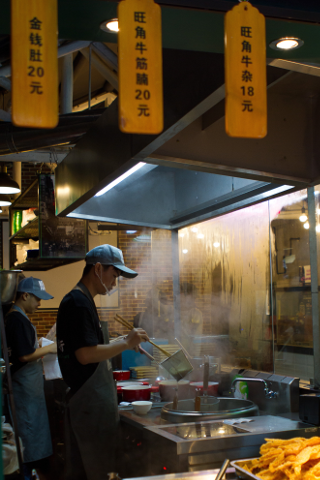My review is of Little Fires Everywhere, a 2017 novel by American author Celeste Ng. A story about conflicts, contrasts, and contradictions. Of rebelliousness vs. conformity. Of playing it safe vs. cutting loose. Doing the right thing vs. using your power to crush those that oppose you. And significantly, a story of motherhood and morals in the struggle over the custody of not just one, but two, babies.
Let’s begin at the end
This book takes the interesting step of starting at the end of the story. There is a fire at the Richardson House in the well-to-do section of Shaker Heights, near Cleveland, which has the appearance of arson. Suspicion quickly falls on Izzy (Isabella Richardson), who is considered to be the “odd one out” in the family . The book then goes back to the beginning of the story and then proceeds in the usual manner.
Sidebar: the Shakers of Shaker Heights
The Shakers were a religious group founded in the 18th Century. They believed we all start out as spirits, brought into a body at its conception. But that trapping a spirit in a body was not a good thing, so they refused to have children. They depended on adoptions and new converts to maintain their community; but it wasn’t enough. The Shakers, who founded Shaker Heights near Cleveland as well as other communities, died out.
At the end of the day, it really doesn’t matter who’s right and who’s wrong. When one group refuses to have children, and another group has them, it’s the second group that increases their numbers over the generations. The fecund will inherit the earth, every time.
Good living in Shaker Heights
Shaker Heights was from the beginning a planned community. Everything from the color of the houses to the start and end times of Trick or Treat was prescribed. Most of the residents had lots of money, with some rental housing hidden away in the neighborhoods so they could have someone to work in the restaurants and drive the school buses.
The story begins
In a rental house owned by the Richardsons, lived Mia Warren and her daughter Pearl. Mia had dreams of becoming a famous photographer, and had a tendency to move around a lot, dragging Pearl and whatever few possessions she could cram in her VW Rabbit. She attended a year at a New York photography school, but when she ran short on money, she accepted an offer to be a surrogate mom for the Ryans, a couple who desperately wanted a child of their own, but couldn’t have one the old-fashioned way.
But Mia decided she wanted to keep the baby, and told the Ryans she miscarried. She left New York, never to return.
While Mia believed in taking direct action to solve problems, her landlady, Mrs. Elizabeth Richardson, believed in deferring to your betters. And the more money you had, the better you were.
As time wore on, Izzy became a good friend to Mia and Pearl; spending time over at their house and apprenticing to Mia to learn photography.

Lexie’s problem
Around this time Lexie (Alexandra Richardson) became pregnant. She decided to have the pregnancy terminated, and did so; but in fear of losing her reputation, gave Pearl’s name instead of her own. She stayed that night over at Pearl’s place and went home the next day. (She had fantasies of telling her lover about it, and that they would start a little family all their own. But things rarely work out that way.)
Enter the McCulloughs
Paul and Linda McCullough also wanted a child, and like the Ryans, couldn’t have one of their own. So they were overjoyed to hear their adoption agency say a foundling had become available. They welcomed little Mirabelle (birth name May Ling Chow) into their home, and started formal adoption proceedings. The baby was left on the doorstep of a Cleveland firehouse by Bebe Chow, whose boyfriend summarily abandoned her when she told him she was pregnant. (Click here for more about this subject.) Jobless and destitute, she took the only road she saw available to her, which was to abandon the child she loved so much. Later, when her finances improved, she tried to find out where the baby went, but the adoption agency would give her no information.
 Bebe and Mia worked at the same Chinese restaurant in Shaker Heights. When Bebe told Mia her story, she told her the infant was with the McCulloughs now, giving her the information the authorities were trying so hard to keep from her. (I’m not sure if Mia believed in the overriding rights of a natural mother, but she was definitely against the environment of secrecy and power vs. powerlessness that had grown up around the issue.)
Bebe and Mia worked at the same Chinese restaurant in Shaker Heights. When Bebe told Mia her story, she told her the infant was with the McCulloughs now, giving her the information the authorities were trying so hard to keep from her. (I’m not sure if Mia believed in the overriding rights of a natural mother, but she was definitely against the environment of secrecy and power vs. powerlessness that had grown up around the issue.)
Bebe had no money for a lawyer. But Mia suggested she go to the nearby television station news department, and enlist their aid. This they did, and the resulting publicity convinced a local lawyer to take on the case for free (probably for the exposure and the additional paying business that that would bring in).
Elizabeth and Elena
Elizabeth made a lunch date with Elena, who worked at the abortion clinic. She expected her long-time friend to just give her access to confidential patient records, which Elena said was illegal and highly unethical. Because Elena wouldn’t agree, that was the last lunch they had together (even though they remained cordial).
But Elizabeth did peek at Elena’s work computer when she walked away temporarily. In the abortion file, she saw Lexie’s abortion, but in place of Lexie’s name, there was Pearl’s.
Morality
Much of what the topic of morality is about is preventing unwanted pregnancies. Less attention is given to other issues, like getting roaring drunk and becoming a public nuisance.

The custody fight
A number of issues were brought up in court, which I bunched together into the following categories:
The major issue:
Bebe voluntarily gave up her child, which by law was intended to be a one-way street. She did not know about the possibility of social services to provide her with money and other aid when she was destitute, but this was no one else’s fault. As they say, ignorance of the law is no excuse.
The middling issues:
The child was already placed with the McCulloughs, and removing her would have been removing her from the family she was starting to grow up with. (If Bebe had tried to get her daughter back before then, that would have been different.)
The McCulloughs made only a token attempt to introduce Mirabelle/May Ling to the culture of her race. (Although because she was so young, that could have been a wasted effort at the time.)
The minor issue:
That the McCulloughs had more money and could have given Mirabelle/May Ling a better lifestyle, is, in my opinion, not that significant. Millions of babies are growing up in disadvantaged circumstances every day, and no one complains about that. Babies are not commodities to be auctioned off to the highest bidder.
The nonissue:
The point was made that Bebe could have always had another child. But that entirely misses the point; having another baby (even though unmarried and in a strange country) would not bring her first child back.
What the court didn’t do:
I keep hearing about lawyers arguing in court about “what’s best for the child” but no one is asking the child what she wants. I’m thinking of putting her on a blanket on the floor, with one hopeful on one side, and the other on the other side, and see which way the baby crawls. But that makes too much sense for it to ever happen.
After the ruling
The judge ruled in favor of the McCulloughs, with stern warnings against Bebe ever trying to see her daughter again. She went to Mia’s home where Mia asked her favorite question, “what are you going to do about it?” I don’t know if she was suggesting that Bebe literally kidnap the child (which she did), but she did encourage her to take matters into her own hands. Bebe and her daughter were on a plane to China before the McCulloughs even knew she was missing. Even if the McCulloughs could trace the pair, they would have had to go through another custody hearing, this time in a Chinese court, which would have been far less sympathetic.
By this time, Elizabeth could see that Mia had been helping her enemy. So she summarily evicted her and Pearl, who packed up and left in the VW Rabbit that same day. (In some jurisdictions that would be strictly illegal.) They left for whereabouts unknown, without even giving Pearl a chance to say good-bye to her friends.
Elizabeth’s anger towards Mia and Pearl was further fueled by her belief that Pearl had had an abortion (not true). Apparently, she thought an abortion was dastardly and shameful, even more so than birthing an illegitimate child. But while she believed it, she never made the accusation — leaving Mia (and Pearl) accused, tried, and convicted without their ever knowing what the issue was. How do you defend yourself in a situation like that? (And I like to believe abortion can be a solution rather than a problem.)
But what about Izzy?
Izzy was the daughter everybody picked on. She was the last to have her needs considered and often being given fewer privileges and more restrictions than her sister and brothers.
She was often described as “mental” or “deranged”, although I believe the root of the problem was that she didn’t passively give in to her mother’s every demand. Izzy had her own idea of what she wanted to do and wasn’t afraid to go her own way. As the typical battle for control wore on, Izzy was constantly faulted for any discord between her and the rest of her family.
Finally, she had enough. She waited until the house was fairly empty, poured some gasoline on each of the beds, and lit them. The fact that the blaze started as “little fires everywhere” (which is where the book’s name came from) was a sure indicator of arson.
(While Mia, Elizabeth, and Bebe struggled to keep custody of their daughters, Izzy wanted nothing less than to get away from her family.)
Izzy then ran away to New York City, hoping she could somehow find Mia (and Pearl) again, and be with them. (Ignoring for the moment that this is all fictional, I hope she finds them; they are much more suited to the kind of young woman she is than the Richardsons.)
Me and the dramatis personae
I suppose if there’s anyone I can compare myself to, it would be Izzy — strong-willed, independent, and nonconformist. I never did blindly accept life according to the way my parents thought it should be, and while they often made me do things their way, the one thing they couldn’t do was convince me that their way was the correct way.
My mother was emotionally distant, my father had a little problem with domestic violence, and my elder brother teased me every day. I, too, longed to get away, but the thing that kept me from running was I was afraid the police would find me and bring me back, where I would have had to face my father’s wrath, worse than before.
And like Izzy, I was seen to be the problem one.
As I got older, running away was more doable, but I was in college then, and wanted to get an education to support myself. When I finally did, it only took me 3 months to get out of there; and then I was free.
Today, I’m the only survivor of the family. You don’t get to be the last to die by doing the wrong thing.
Overall, Little Fires Everywhere is a nice, thought-provoking book.
